As you already know, having a good sleep is essential for good health, so join me to discuss some of the treatments for chronic insomnia.
Trying to have a successful life without quality sleep is like building a house on quicksand, it is futile.
“We always realize the importance of something when we lose it.” – Johnny Mitchell
Life like a beast of burden exhausts us with its responsibilities and hardships.
Internet messages, tweets and electronic pings put too much strain on our brains.
Do this, do that!
I promise to be there on time!
I think I forgot something.
These have disrupted our lives.
Your brain is constantly releasing a hormone called dopamine to meet every new expectation and demand. This hormone can keep you motivated enough to meet those expectations.
Now imagine that among all these tasks, your laptop suddenly crashes in the middle of work. It is as if the whole world is against you.
In the midst of all these daily problems and worries, billions of cells in your body are fighting to keep you alive; They are hungry and thirsty and do not get what they need. Yes, they need medicine and that medicine is regular and quality sleep.
Sleep is a natural medicine. It energizes the body and relaxes the mind.
Chronic insomnia can cause hair loss, increased heart rate, weight loss, anger, and many other problems that you can’t think of.
Sleep is the word!
It’s not a choice, quality sleep is a necessity and a must for a healthy life!
Sleep is vital for human health, so the importance of good sleep in order to have a quality and healthy life cannot be ignored.
If we look at the records of clients of psychological clinics, we find that their sleep patterns have a direct impact on their mental state, and through this we can better understand them. Sleep (or lack of sleep) plays an important role in depression, anxiety and addiction.
Since I have talked a lot about sleep before, we may just need to review it.
I have chronic insomnia
We all do not sleep sometimes. Maybe we are busy or we may have bad habits like surfing the web until the end of the night, which over-stimulates the retina and deprives us of sleep. In addition, excessive alcohol consumption before bed can cause insomnia. The worst of all, we may be awake due to stress and anxiety.
If we solve these problems in our lives, our sleep will usually return to normal. To improve the quality of sleep, clients should start by improving their mental state. Usually when we deal with post-traumatic stress disorder, depression or other psychological problems, we are able to relieve chronic anxiety caused by the hormone cortisol, has a direct impact on sleep.
How to treat insomnia?
If you are trying to cure your insomnia, you should first get acquainted with a series of basic principles. What I mean is that first we need to know our sleep patterns, adjust our daily free time, and ensure the “quality” of our sleep and sleep environment. And the key is to be aware of the most important thing that interferes with sleep: worry.
Insomnia causes
Insomnia can be caused by stressful living conditions, and trying to cure it without examining the cause behind it is a tough battle.
This requires a two-sided effort, which means that on the one hand you can help improve other conditions by directly treating insomnia, but on the other hand, before you do this, you must first understand what your sleep pattern is. Of course, talking about these things is easier said than done.
How much do you sleep?
This question is very difficult to answer because it is difficult to determine exactly what time we fell asleep. During one of the sessions of the “Sleep with Hypnosis” workshops, I met a staff member of the Sleep Lab (laboratories that study sleep patterns and treat insomnia) who told me that in his experience, most people actually sleep more than they realize.
This does not mean that if someone told you, “I did not sleep a single hour last night!” Do not believe them. But just remember that sometimes it is very difficult for you to determine the amount of sleep you get.
It is interesting to know that the amount of sleep you think you get is as important as the amount of sleep you actually get.
One study found that people who believed they slept more performed better in cognitive tests than those who believed they slept less. Interestingly, this was regardless of how much sleep they actually had.
Questions about insomnia and its treatments
Since you definitely do not have a sleep monitor in your home, if you suspect you have trouble sleeping, you should ask yourself questions about sleep. Questions like:
- Does it take you a long time to go to sleep? (more than 30 minutes)
- How many times do you wake up at night?
- Do you wake up early in the morning and feel like you can’t sleep again? (Premature awakening syndrome is a symptom of depression, perhaps because the body is trying to correct the excessive sleep that is a characteristic of depression.)
- Do you wake up tired every morning even if you had slept early the night before?
If you pay attention, you will realize that as soon as you fall asleep, you do not reach the dreaming stage completely, but you may encounter fragments of a series of incomplete dreams. if we had practice, we could stimulate this fragments purposefully to increase our chances of falling asleep. But this is just the beginning.
Let me share with you three other ways to help you sleep better.
The first method: stay awake and fight the odds
If your goal is to sleep, you need to know that trying to stay awake is more effective than trying to fall asleep.
But as frustrating as it may seem, we can use it to our advantage.
Sometimes doing the opposite can help us achieve our goal. This method worked very well for one of my clients and made me happy. His problem was chronic insomnia.
He told me that he struggled with his thoughts for hours before going to sleep, but did not fall asleep. “No matter how hard I try to sleep, I can’t!” He said in despair.
I immediately realized that his excessive efforts to fall asleep were the main reason for his insomnia because sleep should happen slowly, not by greed! In fact, sleep is like a guest, not a slave.
When I asked these clients what they were thinking before going to bed, they answered immediately; He had a freelance job and spent the night before bed thinking about what to do.
Since he was a good man and always kept his word, I set tasks for him. In fact, I used the phrase that Milton Erickson sometimes said to his sleepless clients and told him to use the extra hours!
So what does this mean? What exactly should my client have done?
Whatever you do, don’t sleep!
He was supposed to lie in bed for about an hour, and if he did not fall asleep he had to get up and go to the dimmer part of his house and work for 30 minutes. His work was almost monotonous. he kept records, then he had to go back to bed after 30 minutes, and if he was still awake after an hour, he had to get up again and go to a dim place and work 30 minutes more.
In the first week, he realized that there was not much difference in his sleep, but after the third session, he felt that he no longer wanted to get up and work.
“It’s funny,” he told me. “I seem to want to stay awake, but I feel very drowsy.” The second week he realized that he no longer had to worry about whether he was asleep at all. You may not believe it, but he fell asleep even earlier before reaching the second session.
In the third week, he would fall asleep before doing anything boring, and by then he would have gotten back on track and had less anxiety.
In fact, doing tedious things is not as annoying as worrying about falling behind.
In fact, psychologically, I put him in a medical impasse: he either had to finish work or go to sleep!
The impasse that really worked for him. This person became more “successful” in sleeping when he was “unable” to stay awake to do work.
Part of the success of this method is due to the fact that we do not normally have a great incentive to wake up and do tedious work. So our subconscious motivates us to sleep and use it as a way to escape from work.
So far we have learned that we must be aware that sometimes the first step to falling asleep is to cope with not sleeping.
The second method: three things, three sounds, three feelings
Then I assigned other tasks for the client to do in bed. For example, I taught him a self-hypnosis technique called “Three Things,” which I will teach you later. First, I suggested that while he is still awake, he should try to become deeply calm and get rid of stress and anxiety. Secondly, he had to learn something important about sleep, that sleep is an activity!
Sleep is not a passive activity; The human brain can be very active during sleep (especially in the early stages of sleep) so I taught him that he does not need to be “anesthetized” to fall asleep; Rather, the way is to activate your brain in another way. What does this mean now?
When we fall asleep, we have dreams that are made by our creative and imaginative minds, and normally, these dreams occur in the subconscious, but this is not always the case. In fact, if we start making these dreams consciously and voluntarily, we can help a lot to start our sleep process.
So I taught him to focus on three things around him without moving his head or opening his eyes, and he was supposed to list sentences for himself, for example:
- I can see the side of the drawer
- I can see the bookcase
- I can see my workbench
If the room is too dark (which is definitely good for sleep), try to see something that is seen under some kind of light.
Then I asked him to pay attention to whatever he could hear:
- I can hear myself breathing slowly
- I can hear the train passing by from a distance
- I can hear the rain hitting the window
Then, he had to pay attention to whatever he felt:
- I can feel the weight of the blanket on my chest
- I can feel the air on my body
- I can feel the softness of my pillow on the back of my head
After doing these things (paying attention to what he could see, hear, and feel), he was supposed to close his eyes and imagine three things (A sleeping kitten, a blue circle, a sunset on the sea horizon, or anything else that came to mind).
He was then supposed to imagine three different voices. (The sound of a bath shower, the song of birds among the trees, the sound of the sea on a summer night.)
Eventually, he found three things he could feel. (Swimming in the pool, getting a great massage, walking in the garden barefoot on the grass. Of course, what he thought was entirely up to him, and you might like to imagine something else.)
This exercise helps the human brain get closer to sleep. But I did not want to tell him this fact because it created expectations for him. So instead, by saying, “This is an exercise for you to relax more,” I did not tell him the whole truth.
You may have heard of the latter technique before, but if you knew how effective it could be, you would definitely be surprised, so stay tuned.
Socks
The third method: put on your socks
Wearing socks while sleeping may not be a pleasant thing to do, but if you are thinking about sleeping better, you should try it.
To sleep better, the core body temperature should be lower than other organs. Because the heart beats more slowly during sleep and as a result the body temperature decreases. But the legs should be warmer to ease blood pressure and provide physical relaxation.
You know that sleeping in a very hot room is very difficult because our body temperature rises too much. On the other hand, if your hands and feet are cold (colder than the central parts of your body), this is also extremely harmful to your sleep.
Another interesting point is that if your sleeping area is too cold or too hot, the idea that your hands and feet are warming up has a surprising effect on your sleep. In fact, for example, if your bedroom was very hot and you could not sleep, just imagine a cool breeze hitting your skin to feel better and sleep easier. These things may be due to the power of imagination and indoctrination, but what we do know for sure is that body temperature during sleep is very important.
This could be said to the opposite. if you ever feel cold, you can imagine that you are in a cold and snowy place, but you are sitting by a warm fire and you are warming your hands and feet. Then you can imagine how the air around your hands is warming and visualize the heat as orange or yellow streams around your arms and legs.
Sleep is our constant companion and in childhood, adolescence and adulthood, it will be with us like a constant friend. So do not forget that sleep is a gift that gives us health and we must pay attention to its quality.
It is true that sometimes staying awake and managing life’s problems can be tempting, but if we learn to put quality sleep in our daily routine, we can move forward in our lives with more power.
Self-hypnosis files can also help you sleep better. Many people turn on the radio to fall asleep and get closer to the sleep stage by not focusing on their thoughts.
Insomnia treatment with self-hypnosis files works just like radio, except that by engaging the unconscious mind, they cause distractions for the unconscious mind. Then, it stops problem-solving, and this is where deep sleep occurs. You can use this file and see the result.
What should insomniac people eat?
You may not believe it, but insomnia cannot be cured by eating certain fruits or vegetables. It is better to think of a basic idea and practice deep sleep with mindfulness and using some of the techniques that I have described in this article.
Treating insomnia after covid-19
Post-coronary insomnia is mostly due to anxiety and stress and fear during and after the illness, which is completely normal and will disappear after a while. Covid-19 has no direct link to insomnia and this has not been proven in any research.
Insomnia in women
Women’s insomnia is mostly due to hormonal changes during menstruation and even before and after it and has no other cause. These hormonal changes can change the sensitivity of their tolerance threshold to problems, which can cause insomnia, and for the treatment of chronic insomnia in women, these hormonal changes should be considered and blame should not be placed on other factors which are less involved.
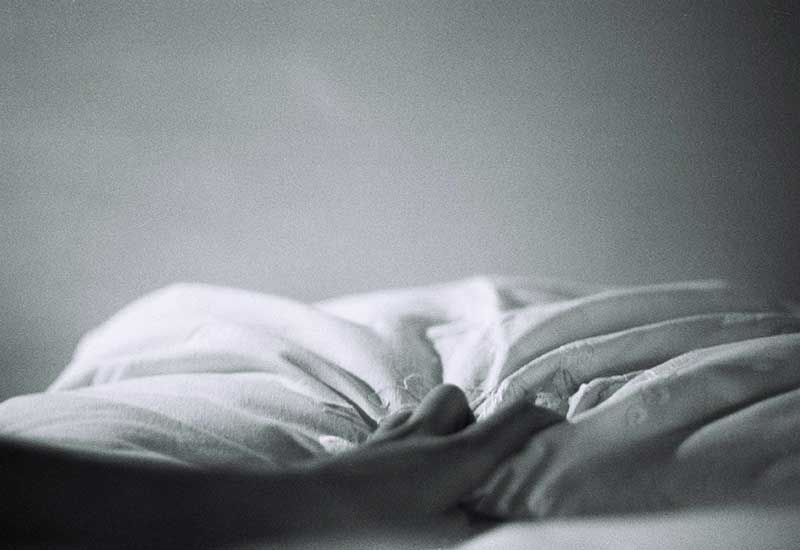

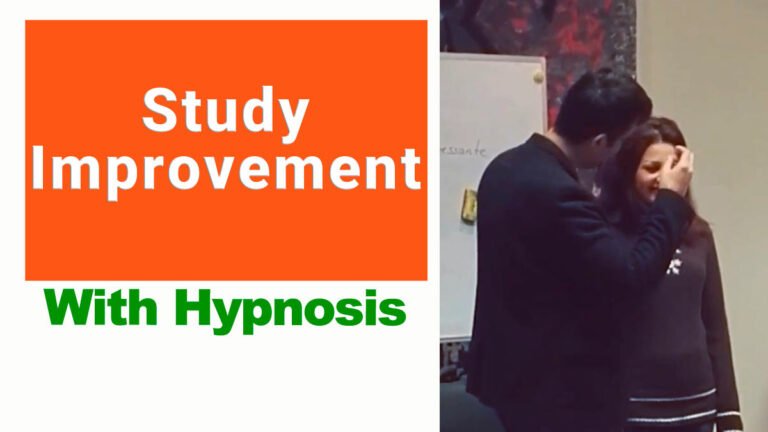
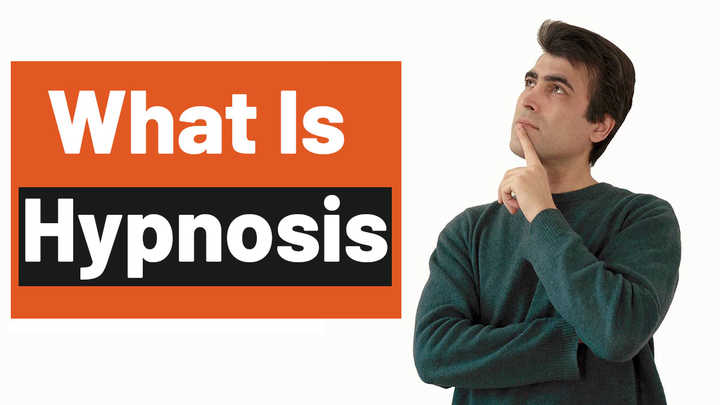

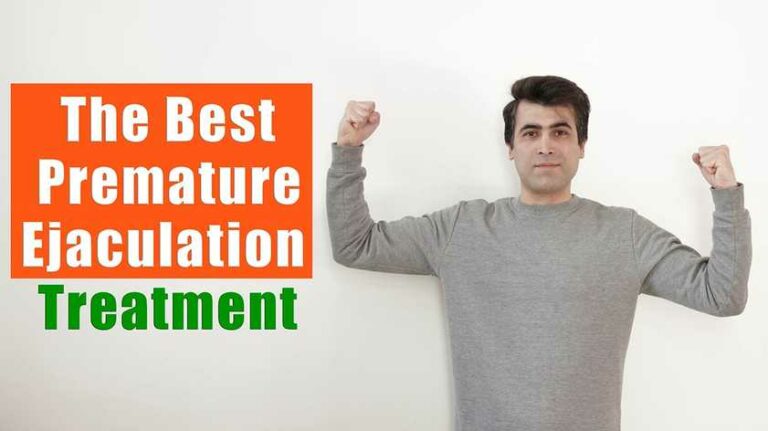
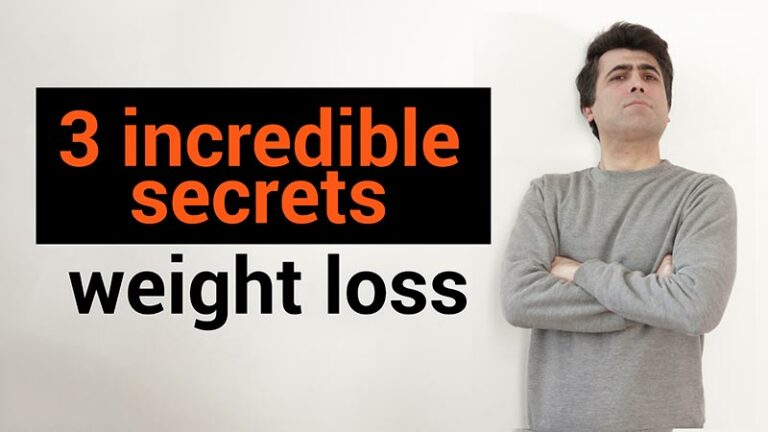
Self-Hypnosis
Stop Premature Ejaculation Ruining Your Sex Life with Self-Hypnosis
Erectile dysfunction treatment with self hypnosis